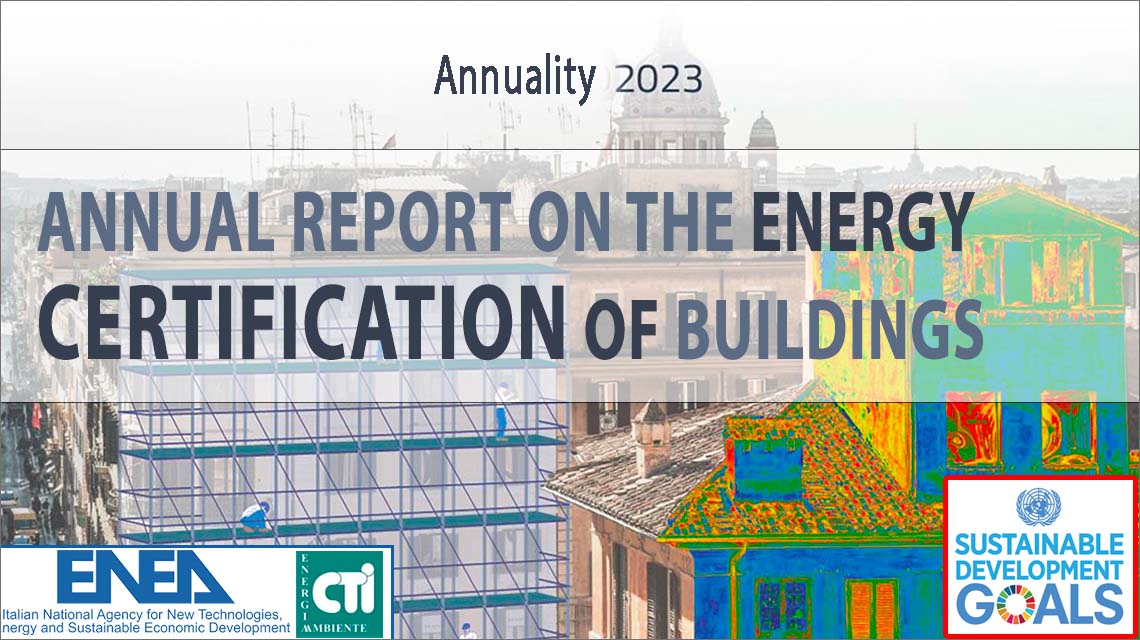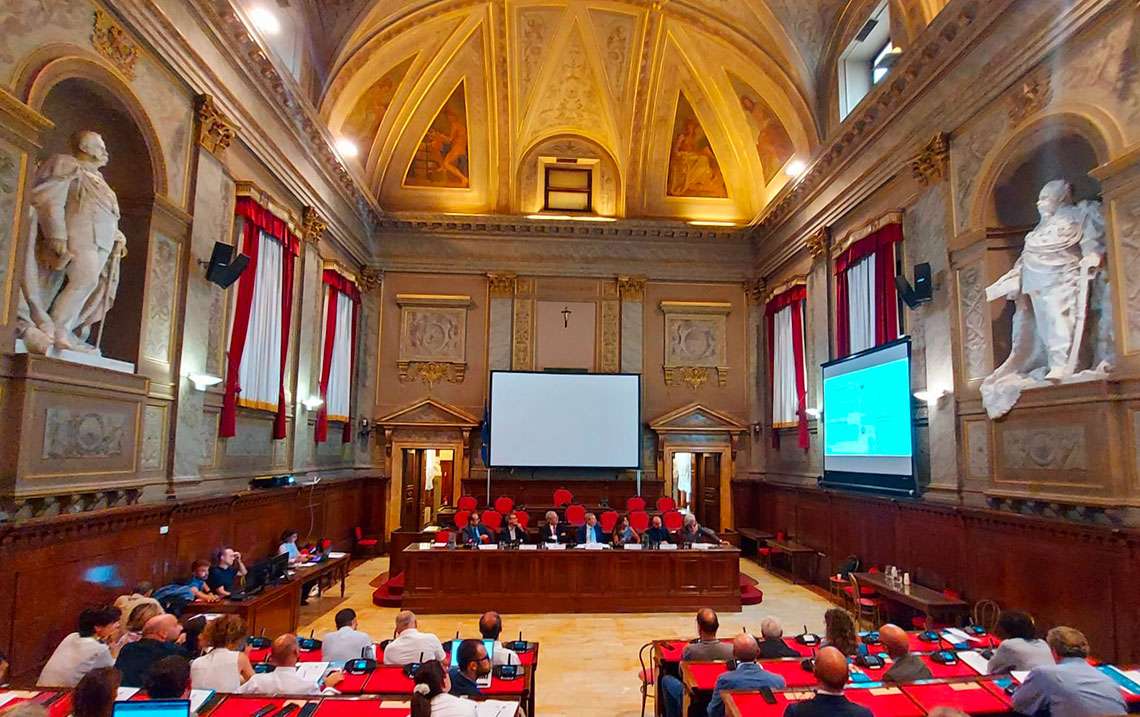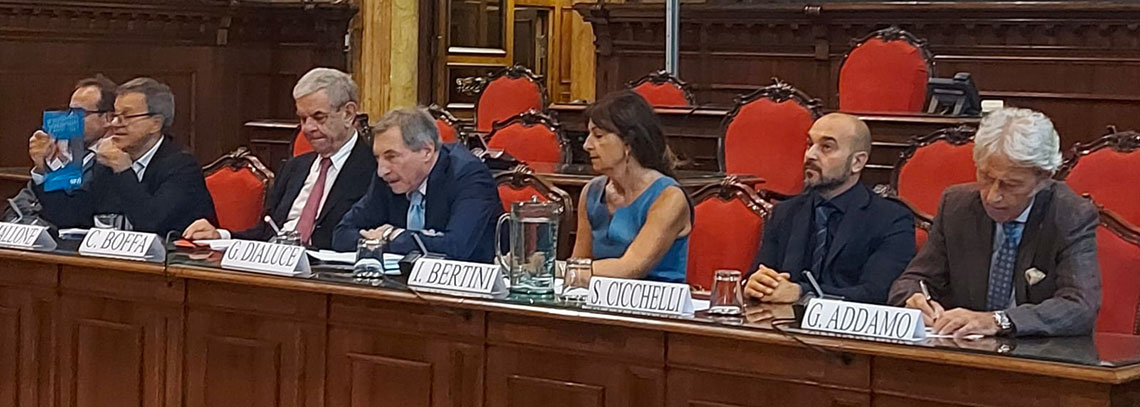Italian National Agency for New Technologies, Energy and Sustainable Economic Development

Energy: ENEA-CTI report, performance of certified buildings on the rise
The energy performance of the certified national building stock continues to increase significantly as shown by the IV annual report on the energy certification of buildings by ENEA and the Italian Thermotechnical Energy and Environment Committee (CTI), drawn up on the basis of approximately 1.3 million energy performance certificates (APE) registered in the SIAPE[1] and issued in 2022 from 17 Regions and 2 Autonomous Provinces. The report highlights a percentage decrease in properties in the lowest energy classes F and G (-3.7%), compared to a mirror increase in the highest classes A4-B (+3.7%). However, distribution by energy class confirms that approximately 55% shows low energy performance (classes F-G).
In particular, the largest share of certificates was issued by the Lombardy region (20.5%), followed by Lazio (9.6%) and Veneto (8.4%). APEs related to changes of ownership and leases are slightly decreasing, although they account for over 80% of the sample analysed. Energy requalifications and in-depth renovations rise in percentage, accounting for 5.7% and 4.1% of the APEs issued in 2022 respectively (+1.5% for both, compared to 2021); There were over 17 thousand APEs registered in the SIAPE in the Nearly Zero-Energy Buildings (NZEB - Nearly Zero-Energy Buildings) category between 2015 and 2022.
The main novelty of this edition is the section of the report dedicated to new tools and analysis methods for improving the quality of the APE, in particular to optimize control methodologies by the certifier both during the preparation phase of the APE and the following.
Furthermore, the implementation of the regional Single Energy Cadastre (CEU), the role of the National Portal for the Energy Performance of Buildings (PnPE2) and the other IT applications prepared by ENEA were explored in depth.
The digitalisation of the APEs is crucial to identify the areas with the greatest need for intervention according to different territorial characteristics and offer citizens a more complete set of information, also thanks to digitalised one-stop shops.
Finally, the report analyses the results of a questionnaire administered to a sample of approximately 80 subjects, including associations, consortia and professional associations, who expressed their point of view on various aspects of the national energy certification system regarding proposals for revision of the EPBD Directive on the energy performance of buildings.
“The significant energy price rise and the ongoing climate crisis are increasingly pressing issues that make interventions for the energy improvement of buildings even more necessary”, pointed out the President of ENEA, Gilberto Dialuce. “In this context, the Report represents a further joint effort by ENEA and the CTI to improve the quality of the overall situation of private and public real estate, also in light of the decisions on the new EPBD Directive soon to be taken at the EU level. An indispensable synergy also for the definition of intervention strategies in the sector at national and territorial level, and for a more targeted and stable orientation over time of the necessary investments and related incentive systems", said Dialuce.
“The new edition of the Report wants to be a constantly updated and evolving working tool to support those who must or want define strategies, measures and actions on the national building stock, in line with the challenging objectives that the energy transition and decarbonisation impose on us”, pointed out the President of the CTI, Cesare Boffa. “This new phase of the collaboration between ENEA and the CTI highlights a continuous improvement of the information that can be collected, analysed and transmitted to the Public Administration and interested operators”, concluded Boffa.


